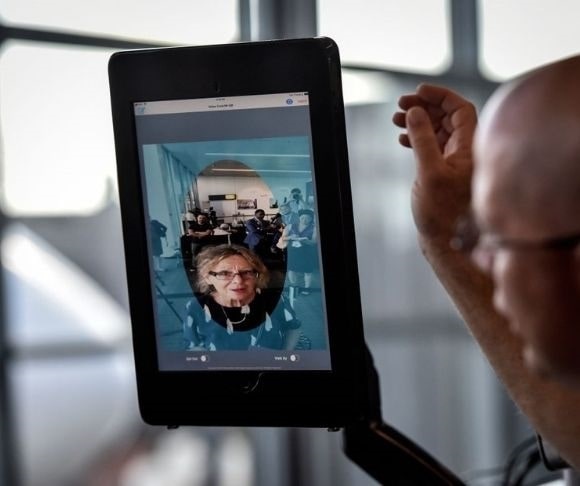
(Photo by Bill O’Leary/The Washington Post via Getty Images)
The implementation of facial recognition or fingerprint scans as a form of identification to replace alphanumeric passwords is already underway, and its application is moving beyond the smartphone, tablet, and laptop. The COVID vaccine passport was coined to reform the use of technology and control social participation – but that didn’t work out as proponents hoped it would. Yet local governments are still entertaining digital IDs. Will these so far voluntary programs keep users’ data protected and secure, or will they lead to violating Americans’ rights?
New York Making Moves
New York could become the first state to allow restaurants and bars to use fingerprint scanning or facial recognition to verify a customer’s age in order to purchase alcohol, tobacco, or electric cigarettes. This biometrics bill would require all data to be encrypted for security purposes and prohibit businesses from selling consumers’ data to third parties.
The bill’s sponsors envision an opt-in program, rather than something people are forced to accept. Establishments could scan fingerprints, retinas, or faces of customers who don’t want to go through the trouble of carrying around their ID. The concept promises convenience for restaurant owners, staff, and customers. And this new era of age verification could also combat underage drinking.
It’s a thin and confusing line servers and bartenders walk when serving alcohol. Everyone must have legal identification handy, or the establishment risks losing its liquor license by serving someone too young. However, fake IDs have been around for as long as proof of age has been required, and seemingly become more authentic-looking every year. The New York legislation would put the Department of Health and State Liquor Authority in charge of compiling regulations and securely maintaining the biometric data. Since this would be an opt-in scenario, the underage would most likely not agree to participate and would prefer to use a fake ID instead of having their faces scanned. Regardless, this is a giant leap forward in the digital identity space. The option, for now, would be voluntary, but one can see how a program such as this could easily be made mandatory.
Digital IDs
We’ve also seen states and cities push Apple to hold digital IDs in the Apple Wallet. The Washington, DC, city council approved the implementation of digital driver’s licenses and IDs in 2021. This feature isn’t immediately available, partly due to Apple delaying its support until sometime this year, but DC’s Department of Motor Vehicles has in the works a platform that would host identification credentials. By 2023, residents could be producing their driver’s licenses on their phones, and settling their tabs with Apple Pay, eradicating the need for a wallet or carrying physical cards.
The nation’s capital isn’t alone in adopting digital IDs; Arizona, Connecticut, Georgia, Kentucky, Maryland, Iowa, Utah, and Oklahoma all have similar legislation in the works. Our friends up north in Ontario are a couple of steps ahead already. The local government wants to make Ontario “one of the world’s most digitally advanced jurisdictions.” The voluntary digital ID was set to be released in 2021 but was pushed back to some time in 2022.
Many Canadians, including Former Conservative MP Derek Sloan, are concerned that this new tool will be used to track citizens, sell personal data, and give the government too much control over its residents’ participation in society. The government insists that is not the case and that this voluntary program will keep Canadians’ information secure and protected. But the cybersecurity risks are high.
Government Control

(Photo by Bill O’Leary/The Washington Post via Getty Images)
Sloan wants to ban digital IDs altogether, claiming they foreshadow a communist-like social credit system. He thinks this kind of digitization would grant the government the power to cut off one’s ability to engage in society. As an example, Sloan pointed to the Freedom Convoy and the Canadian federal government’s response, which included the warning that “trucks can be seized, their corporate accounts frozen and vehicle insurance suspended.” Granted, the Canadian federal government is far from having such intense control over its citizens, but the slope certainly can be slippery when it comes to government power.
All of these technological moves are still in the works, and you won’t be getting your fingerprint scanned at the bars this summer, but next summer is a possibility. As long as these programs remain voluntary, Americans shouldn’t be worried about their rights or privacy being violated. However. the handwriting is already on the wall and it’s likely that more states will follow New York’s lead.
Remember to check out the web’s best conservative news aggregator
Whatfinger.com — the #1 Alternative to the Drudge

